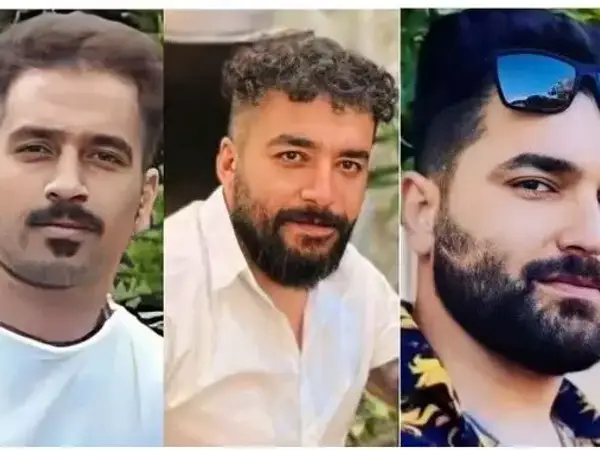Despite global outcry, Iran’s regime on Friday morning executed three political prisoners who were arrested during last year's protests and framed for murder.
Majid Kazemi, Saeed Yaghoubi and Saleh Mirhashemi were convicted over the death of two IRGC’s Basij militia members and a police officer in protests of November last year, in what Persian media have dubbed the ‘Esfahan (Isfahan) House’ case.
The judiciary announced their execution in a statement on Twitter Friday morning, bringing to at least seven the number of protesters hanged since the beginning of the nationwide protests since September 2022 following the death in custody of 22-year-old Mahsa Amini.
The three were handed down the death sentence in a trial condemned as a travesty of justice by human rights campaigners, who say the prisoners were tortured into confessions, and there is no reliable evidence against them.
A photo of Saleh Mirhashmi's father went viral on Thursday holding a banner that reads, "My son is innocent. He didn't have any weapon."
The three wrote from jail on Wednesday, urging the people to stop their execution. Describing themselves as "children of Iran" in the letter, the three prisoners said: "Hello. We ask our dear fellow citizens not to let them kill us. We need your help. We need your support."
Following the news of the executions, videos are emerging on social media of people expressing anger and chanting slogans. There are dozens of social media users who are calling for protest rallies against the executions.
During the past several days, a large number of foreign officials and human rights activists had called on the Islamic Republic to stop the executions.
During a news briefing on Thursday, Vedant Patel, the Principal Deputy Spokesperson of US State Department, joined the international community in calling on the regime not to carry out the executions, saying, "We are aware that Iranian authorities may imminently execute Majid Kazemi and Saleh Mirhashemi and Saeed Yaghoubi in connection with their participation in protests in Iran.”
“The execution of these men, after what have been widely regarded as sham trials, would be an affront to human rights and basic dignity in Iran and everywhere,” he said, noting that “It is clear from this episode that the Iranian regime has learned nothing from the protests that began with another death, the death of Masa Amini in September of last year.”
“We once again urge Iran's leadership to stop the killing, stop the sham trials, and respect people's human rights."
Amnesty International also on Wednesday slammed their trial and sentencing saying it was “shocking”.
Diana Eltahawy, Amnesty International’s Deputy Director for the Middle East and North Africa, said: “The shocking manner in which the trial and sentencing of these protesters was fast-tracked through Iran’s judicial system amid the use of torture-tainted ‘confessions’, serious procedural flaws and a lack of evidence is another example of the Iranian authorities’ brazen disregard for the rights to life and fair trial.”
Amnesty’s statement also referred to Majid Kazemi’s audio recording from prison in which he said he was forced to make false self-incriminating statements after interrogators beat him, gave him electric shocks, subjected him to mock executions, threatened to rape him, execute his brothers and harass his parents.
On Sunday night and again on Wednesday night, people gathered outside Esfahan Central Prison hoping to stop the hangings.
Opposition activists say the death penalty was used against the three men as an intimidation tactic to stop further protests.
Iranian expatriate communities plan demonstrations against the executions in cities worldwide on Saturday, May 20.
Recent nationwide protests posed the biggest internal challenge to the Islamic Republic since its establishment in 1979.
So far, around 500 civilians have been killed by security forces and at least 20,000 arrested. While many have been released, around 1,500 face criminal charges, and at least 80 detainees face the death sentence.
